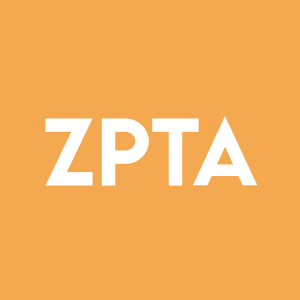Zapata AI Publishes Research Findings From Phase II of DARPA’s Quantum Benchmarking Program
Rhea-AI Summary
Zapata AI, listed on Nasdaq under the symbol ZPTA, published key findings from Phase II of DARPA's Quantum Benchmarking program.
The research, involving partners such as Rigetti Computing, USC, HRL Laboratories, and L3Harris, highlights the economic value and resource requirements for select transformative quantum computing use cases.
These applications include homogenous catalyst design, incompressible computational fluid dynamics, and correlated material simulation, each representing potential multi-million to billion-dollar value.
Zapata AI's involvement across all program tracks underscores its leadership in quantum computing.
Pre-prints of the research were released on June 10 and are available on arxiv.org.
The program, initiated in 2021, aims to apply scientific rigor in measuring quantum computing progress.
Phase II, continuing until March 2025, focuses on optimizing quantum algorithms and refining utility estimates.
Positive
- Publication and presentation to DARPA highlight Zapata AI's leadership in quantum computing.
- Research could unlock millions or billions in potential value across industries.
- Zapata AI's inclusion in all tracks of DARPA's Quantum Benchmarking program underscores its platform and research capabilities.
- Phase II program extends until March 2025, offering continued development and optimization opportunities.
Negative
- Ongoing nature of the research indicates potential delays in immediate practical applications and revenue generation.
News Market Reaction 1 Alert
On the day this news was published, ZPTA declined 6.13%, reflecting a notable negative market reaction.
Data tracked by StockTitan Argus on the day of publication.
The research highlights the economic value and resource requirements for select use cases where quantum computing may be transformative
BOSTON, June 20, 2024 (GLOBE NEWSWIRE) -- Zapata Computing Holdings Inc. (“Zapata AI” or the “Company”) (Nasdaq: ZPTA), the Industrial Generative AI company, today announced that it has published and will present to the Defense Advanced Research Projects Agency (DARPA) select research findings — alongside its collaborators Rigetti Computing, University of Southern California, HRL Laboratories and L3Harris — from its participation in Phase II of DARPA’s Quantum Benchmarking program. Publication of these results represent a critical milestone in DARPA’s initiative to quantitatively measure the economic value of specific, transformational quantum computing use cases and the associated hardware-specific resources required for a given level of performance. As the only company participating across all program tracks, the results serve as a testament to Zapata AI’s continued leadership in quantum computing.
“We are very excited to present our research into how quantum computers can generate substantial economic benefits across industries and speed up the process in which complex industrial scale problems can be solved,” stated Peter Johnson, Lead Research Scientist and Co-Founder for Zapata AI. “Our participation in the transformative Quantum Benchmarking program reflects the quality DARPA sees in our platform and research capabilities, and we are very appreciative it has trusted Zapata AI to co-lead these efforts alongside our partners. Working with influential government agencies like DARPA on projects like this one involves a rigorous selection process and a commitment to pushing beyond the realm of what’s possible, and it’s an absolute honor to be at the forefront in shaping how quantum computing can potentially be used to redefine the future as we know it."
In collaboration with its partners, Zapata AI has been focused on 1) developing use cases for quantum computing and estimating their utility1, and 2) developing software tools to predict the capabilities of and to develop future quantum computers2. During Phase II of the program, the Company and its partners at L3Harris and the University of Toronto estimated the economic utility of several high-value applications, representing millions or billions in potential value, and the quantum resources required to unlock that value. Applications include:
- Homogenous catalyst design. The research represents the new state-of-the-art resource estimation for nitrogen fixation in ammonia production, widely used in agricultural fertilizer.
- Incompressible computational fluid dynamics for applications such as simulation-driven ship design. The paper represents the first ever resource estimation for this particular use case.
- Correlated material simulation for applications such as superconductor and battery design.
Pre-prints of the research results for these utility and resource estimates were released on June 10 and are available on http://arxiv.org/ (Pre-prints for each application are hyperlinked above).
DARPA kicked off its Quantum Benchmarking program in 2021 with a goal of reinventing the metrics that are critical to measuring quantum computing progress and applying scientific rigor to often unsubstantiated claims about quantum computing’s future promise. Zapata AI was selected by DARPA for participation in Phase 1 of this program in 2022, with the Phase I award focused on building BenchQ, an open-source tool for benchmarking quantum computing applications, and demonstrating its value for resource estimation. In 2023, the Company was selected for Phase II of the program, which is focused on improving the tool to increase community adoption.
Throughout the remainder of Phase II, which is expected to conclude in March 2025, Zapata AI and its partners will continue to optimize the quantum algorithms studied for the various applications and improve the utility estimates to understand the value proposition of future quantum computers.
About Zapata AI
Zapata AI is an Industrial Generative AI company, revolutionizing how enterprises solve complex operational challenges with its powerful suite of generative AI software applications and cutting-edge reference architecture. By combining numerical and text-based generative AI models and custom software applications to power industrial-scale solutions, Zapata AI enables enterprises and government entities to drive growth, cost savings through operational efficiencies, and critical operational insights. With its proprietary data science and engineering techniques, and the Orquestra® platform, Zapata AI is accelerating Generative AI’s impact across industries by delivering solutions which are higher performing, less costly, and more accurate and expressive than current, classical approaches to AI. The Company was founded in 2017 and is headquartered in Boston, Massachusetts.
Forward Looking Statements
Certain statements made herein are not historical facts but are forward-looking statements for purposes of the safe harbor provisions under The Private Securities Litigation Reform Act of 1995. Forward-looking statements generally are accompanied by words such as “believe,” “may,” “will,” “intend,” “expect,” “should,” “would,” “plan,” “predict,” “potential,” “seem,” “seek,” “future,” “outlook,” and similar expressions that predict or indicate future events or trends or that are not statements of historical matters. These forward-looking statements include, but are not limited to, statements regarding future events and other statements that are not historical facts. These statements are based on the current expectations of Zapata AI’s management and are not predictions of actual performance. These forward-looking statements are provided for illustrative purposes only and are not intended to serve as, and must not be relied on, by any investor as a guarantee, an assurance, a prediction, or a definitive statement of fact or probability. These statements are subject to a number of risks and uncertainties regarding Zapata AI’s business, and actual results may differ materially. These risks and uncertainties include, but are not limited to, Zapata AI’s ability to attract new customers, retain existing customers, and grow; competition in the generative AI industry; Zapata AI’s ability to raise additional capital on non-dilutive terms or at all; Zapata AI’s failure to maintain and enhance awareness of its brand; and the risks and uncertainties discussed in the Company’s filings with the Securities and Exchange Commission (including those described in the Risk Factors section in the Company’s Annual Reports on Form 10-K and Quarterly Reports on Form 10-Q).
While Zapata AI may elect to update these forward-looking statements at some point in the future, Zapata AI specifically disclaims any obligation to do so. These forward-looking statements should not be relied upon as representing Zapata AI’s assessments as of any date subsequent to the date of this press release. Accordingly, undue reliance should not be placed upon the forward-looking statements.
Contacts:
Media: press@zapata.ai
Investors: investors@zapata.ai
____________________________
1 In collaboration with L3Harris and University of Toronto
2 In collaboration with University of Technology Sydney, IonQ, Aalto University, and University of Texas at Dallas







